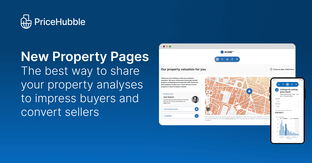A real estate agent’s job is one of the most versatile out there. Their duties are wide ranging: from prospecting and valuations to publishing listings, carrying out viewings, managing properties, understanding the market and ensuring legal compliance. This sets them apart as an expert authority on the property market.
Unfortunately, knowledge alone isn’t always enough. Nowadays, there are several solutions that enable agents to be more efficient and mobile by coupling the on-the-ground work with a premium digital experience.
But how do real estate agents position themselves as trust-worthy experts? Read on to find out how digital tools are aiding property agents and the benefits of being a 100% mobile digital agent.
Today’s real estate agent
All the technological advances in recent years as well as the global pandemic have highlighted the need for many professions to accelerate their digital transformation. And real estate agents are no exception.
Digital tools have become a necessity in our ever-more connected world where social distancing has become the norm and everything is moving at break-neck speed.
The two hottest topics in the world of real estate right now are how to digitalise the property agent profession and what impact technological advances are going to have on the industry as a whole.
And rightly so. In 2021, over 6.4 billion people owned smartphones and 54.8% of website views were made on a mobile device (vs. 31% in 2015).* Digital media is constantly growing and, consequently, real estate agents must diversify their communication channels to be more efficient and adapt to their customers and/or leads.
The work of a real estate agent is like no other: it combines both on-the-ground duties with more administrative tasks, the latter of which could be digitalised. Property agents are always on the move, which means the idea of a mobile real estate agent makes perfect sense.
Technology as an answer to the global pandemic
The pandemic has served to accelerate change in the world of real estate. Metrics such as increased sales of secondary residences in 2020*show that this type of crisis can create challenges but also open up new possibilities and opportunities. Real estate agents have no other choice but to adapt and leverage new technology to ensure they don’t miss out on new leads and earn new listings.
Real estate agents must adopt new technology in response to the pandemic and the needs of clients and/or leads: being more mobile is vital to staying ahead of the competition and ensuring a business prospers.
Non-mobile vs. mobile agent: what’s the difference?
Digital tools play an integral role in a real estate agent’s job and day-to-day activities, but what added benefits do these tools truly bring? What differentiates a mobile and non-mobile agent? Let’s take a look at a few examples:
A real estate agent is on the way to a viewing:
🙅♀️Non-mobile agent: the agent forgets their notebook in their local café and doesn’t know the lead’s address off by heart. They must therefore go back to get the notebook and end up arriving late to their meeting.
📱Mobile agent: the agent has the meeting’s address in their CRM, which they can access via their phone or tablet. They also have all the important information on the prospective seller. They arrive on time and are even able to look over their notes while waiting!






